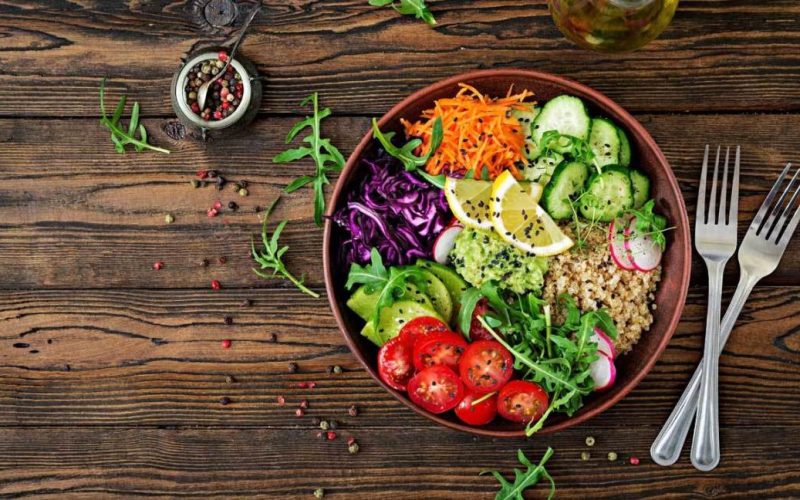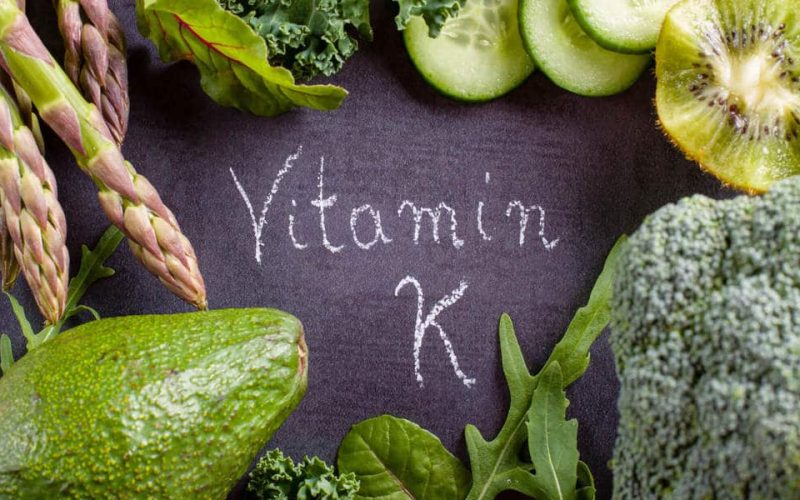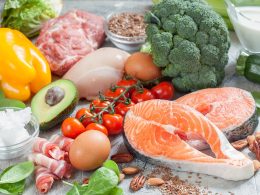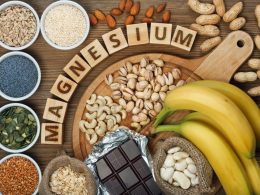The vegetarian diet has surprisingly gained global popularity in recent years, so much so, report has it that about 18% of the world’s population are vegetarians.
Apart from the environmental and ethical benefits of eliminating meat from your diet, a proper vegetarian diet can actually help minimize the risk of chronic illnesses. Not only that, it also supports loss of unwanted fat and improves the quality of overall health.
Fascinating isn’t it? What comes to your mind when you hear a vegetarian diet?
The vegetarian diet simply involves a diet that doesn’t include eating fish, meat, and poultry.
Many vegetarians adopt this diet for either religious, health, or personal reason. While others choose not to eat meat, fish, and poultry for ethical reasons, like animal rights.
Most people decide to become vegetarian due to environmental reasons, because they believe livestock production promote greenhouse gas emissions, affecting climatic change and the quality and quantity of water, natural resources and energy.
There are many known forms of vegetarianism, and each unique in its own form. Some of the most common form of vegetarian diet include;
- Ovo-vegetarian diet: This involves the removal of meat, fish, poultry and dairy products from your diet, with the exception of eggs.
- Lacto-vegetarian diet: This involves the removal of meat, fish, egg, and poultry from your diet, with the exception of dairy products.
- Lacto-ovo-vegetarian diet: This involves the removal of meat, fish, and poultry from your diet, with the exception of eggs and dairy products.
- Flexitarian diet: This is a diet that occasionally allows for meat, fish, and poultry.
- Pescatarian diet: This involves the removal of meat and poultry but fish and sometimes eggs and dairy products are allowed.
- Vegan diet: This is the most extreme of the vegetarian diets. It involves the abstinence from all animal products, with no exceptions. What this means is, vegans can’t eat meat, fish, eggs, poultry, and any dairy products.
Health benefits of a vegetarian diet
Vegetarian diets are linked with a number of health benefits. Studies also has it that vegetarians have better diet quality than people who eat meat. They also have a higher intake of vital nutrients like Vitamin C, Vitamin E, fiber, and magnesium.
Several other health benefits may be gotten from a vegetarian diet as well, and some of them include;
May encourage weight loss
Adopting a vegetarian diet can effectively help with weight loss, if that’s your target. Vegetarians noticeably, on average, lose more than 2kg in 18 weeks than non vegetarians.
A six-month study in 74 people who had type 2 diabetes, proved that vegetarian diet was nearly two times as effective at minimizing body weight than other diets, like low-calorie diets.
May minimize the risk of cancer
Studies suggests that vegetarian diet may be associated to a lower risk of cancer,- that includes colon, breast, rectum, and stomach.
Nonetheless, further research is necessary to understand how vegetarianism really affects cancer.
May help to stabilize blood sugar
Countless studies have proven that vegetarian diets may help to keep the levels blood sugar in check.
Vegetarian diet helps to improve the control of blood sugar in people with type 2 diabetes. It is also believed to be able to prevent diabetes in the long term by normalizing blood sugar.
2,918 people, according to a study, who switched from non-vegetarian diet to vegetarian diet, were linked with 53% lower risk of diabetes.
Promotes the health of the heart
Vegetarian diets is known to minimize several heart conditions and diseases by keeping the heart strong and healthy.
A low-calorie vegetarian diet is also more effective in reducing bad LDL cholesterol, unlike a Mediterranean diet.
Vegetarianism typically helps to maintain a good blood pressure, hence, keeping the heart in very good condition.
Including a variety of vegetables, fruits, protein sources, whole grains, and fortified foods is a straight forward way in ensuring a proper nutrition.
Other nutritional option to maintain a balanced vegetarian diet includes supplements and multivitamins. These helps to compensate for likely deficiencies.
The types of food to eat in a vegetarian diet
A vegetarian diet should have several mix of grains, fruits, protein, vegetables and healthy fats.
You should add a variety of protein-rich plant foods like seeds, nuts, legumes, seitan, tofu, and tempeh.
Eating eggs and dairy products can help in boosting your overall intake of protein, if you are following a lacto-ovo-vegetarian diet.
Some food to include in a vegetarian diet should include;
- Fruits: Bananas, apples, melons, oranges, peaches, berries, pears.
- Grains: Barley, quinoa, buckwheat, oats, rice.
- Vegetables: Carrot, green beans, asparagus, leafy greens, broccoli, tomatoes.
- Legumes: Beans, peas, lentils, chickpeas.
- Nuts: Chestnut, walnuts, cashews, almonds.
- Seeds: Chia seeds, flax seeds, hemp seeds.
- Proteins: Tofu, seitan, tempeh, natto, eggs, spirulina, nutritional yeast, dairy products.
- Healthy fats: Olive oil, avocados, coconut oil.
The types of food to avoid
Vegetarianism has several variations to it, and each with its own restrictions. Depending on the type of vegetarian you are, you may have to avoid some of the following if you are on a vegetarian diet;
- Meat: pork, veal and beef.
- Fish: Fish and shellfish. However, this isn’t applicable to pescatarians.
- Eggs: Applicable to lacto-vegetarians and vegans.
- Meat-based ingredients: Lard, gelatin, carmine, oleic acid, isinglass and suet.
- Dairy products: This restriction on yogurt, milk, and cheese only applies to ovo-vegetarians and vegans.
- Other animal products: Depending on preferences, vegans could choose to leave honey, pollen and beeswax out of their diet.
Most vegetarians would rather not eat meat, fish, poultry, eggs, animal products, and even dairy.
It is very important to maintain a balanced vegetarian diet, by ensuring to eat nutritious foods like healthy fats, grains, fruits, and plant-based protein.
Also make sure to properly plan your diet so you aren’t deficient on any. You can discuss with your dietician so you don’t miss anything important.
Are you a vegetarian? How do you make up for protein? Share with us in the comments.









